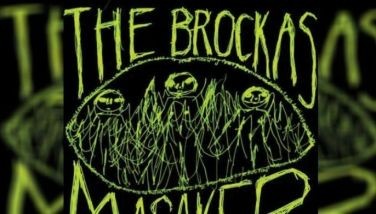Controversial docu a hit
MANILA, Philippines - “An incredible story, beautifully and persuasively told,” said The Guardian. “A remarkably cogent documentary… (presented) in so concrete, linear and compelling a fashion,” said Variety. “Revelations from start to finish… after 95 minutes, your mind will be blown,” said film site Unseen Films. “Enthralling, heart-breaking story… a tense and terrifying piece of cinema,” according to Now Then Magazine. “Jaw-dropping… Hard to turn away from,” echoed The New York Times.
After premiering at the Tribeca Film Festival in 2011, and having won 16 major awards since then, Give Up Tomorrow, the documentary that tells the untold story of Paco Larrañaga, finally screened in the Philippines last week and is being extended for a second week in Greenbelt 3 and SM Cebu until Oct. 16. And, more theaters will show it starting this weekend — Greenhills Promenade and Eastwood Cinemas (Friday to Sunday, Oct. 12 to 14) and Gateway Cineplex (Oct. 17 to 23).
The film may have by now played in more than 50 festivals in over 25 countries, but the Philippines, where most of the film’s drama unfolds, has always been regarded by its makers as its ultimate destination.
Give Up Tomorrow follows the story of the 1997 disappearance of sisters Marijoy and Jacqueline Chiong in Cebu, and the subsequent arrest of Paco, a young Cebuano taking up culinary studies in Manila, member of a mestizo political clan, beefy and tough with a history of petty offenses. Cast by the media as the quintessential privileged thug, he becomes prime suspect in the murder and rape of the Chiong sisters. Despite dozens of witnesses and photographic evidence insisting he was 300 miles away from Cebu at the time the crime was supposedly committed, Paco is eventually proclaimed guilty, and sentenced to two consecutive terms of life imprisonment.
The film is directed by New Yorker Michael Collins and produced by Filipino Marty Syjuco.
- Latest
- Trending





























